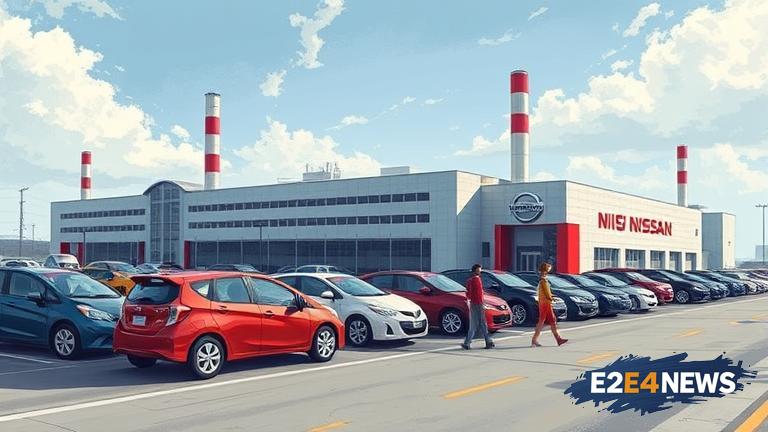Nissan, the Japanese automaker, has announced the closure of its first overseas factory, which has been in operation for several decades. The factory, located in Blayney, Australia, has been a significant contributor to the local economy and has produced numerous iconic models over the years. The decision to close the factory has been met with disappointment and concern from the local community, with many expressing sadness at the loss of jobs and economic activity. The factory has been a major employer in the region, with hundreds of workers set to be affected by the closure. Nissan has cited declining demand and increasing competition as the main reasons for the closure, as the company seeks to streamline its operations and focus on more profitable markets. The factory has been in operation since the 1970s and has produced a range of models, including the popular Datsun and Nissan Bluebird. The closure is expected to have a significant impact on the local economy, with many businesses and suppliers set to be affected. The Australian government has expressed disappointment at the decision, with officials calling for support for the affected workers and businesses. Nissan has pledged to provide support and assistance to the workers who will be losing their jobs, including training and outplacement programs. The company has also announced plans to maintain a presence in the Australian market, with a focus on sales and marketing activities. The closure of the factory is part of a broader trend of automotive manufacturers streamlining their operations and focusing on more profitable markets. Many other manufacturers have also announced closures and restructuring plans in recent years, citing similar reasons. The impact of the closure will be felt not only in the local community but also in the wider Australian economy, with many industries and businesses set to be affected. The Australian automotive industry has been facing significant challenges in recent years, with many manufacturers announcing closures and restructuring plans. The industry has been subject to intense competition and declining demand, with many manufacturers struggling to remain competitive. The closure of Nissan’s factory is a significant blow to the industry, with many fearing that it could have a ripple effect on other manufacturers and suppliers. Despite the challenges, many are hopeful that the industry can recover and thrive in the future, with a focus on innovation and new technologies. The Australian government has announced plans to provide support and assistance to the industry, including funding for research and development and training programs. Nissan’s decision to close its factory is a significant milestone in the history of the company, marking the end of an era for the manufacturer in Australia. The company has a long and proud history in the country, with many iconic models having been produced at the factory over the years. The closure of the factory will be remembered as a significant event in the history of the Australian automotive industry, with many reflecting on the impact it will have on the local community and the wider economy. As the industry continues to evolve and change, many are hopeful that new opportunities and challenges will emerge, and that the Australian automotive industry can continue to thrive and grow in the future.
